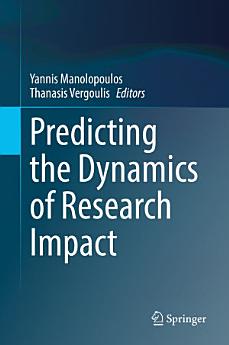Predicting the Dynamics of Research Impact
ກ່ຽວກັບປຶ້ມ e-book ນີ້
The single chapters are written in a way that help the reader gain a detailed technical understanding of the corresponding subjects, the strength and weaknesses of the state-of-the-art approaches for each described problem, and the currently open challenges. While chapter 1 provides a useful contribution in the theoretical foundations of the fields of scientometrics and science of science, chapters 2-4 turn the focal point to the study of factors that affect research impact and its dynamics. Chapters 5-7 then focus on article-level measures that quantify the current and future impact of scientific articles. Next, chapters 8-10 investigate subjects relevant to predicting the future impact of individual researchers. Finally, chapters 11-13 focus on science evolution and dynamics, leveraging heterogeneous and interconnected data, where the analysis of research topic trends and their evolution has always played a key role in impact prediction approaches and quantitative analyses in the field of bibliometrics. Each chapter can be read independently, since it includes a detailed description of the problem being investigated along with a thorough discussion and study of the respective state-of-the-art.
Due to the cross-disciplinary character of the Science of Science field, the book may be useful to interested readers from a variety of disciplines like information science, information retrieval, network science, informetrics, scientometrics, and machine learning, to name a few. The profiles of the readers may also be diverse ranging from researchers and professors inthe respective fields to students and developers being curious about the covered subjects.ກ່ຽວກັບຜູ້ຂຽນ
Yannis Manolopoulos is a Professor and Vice-Rector at the Open University of Cyprus as well as a Professor Emeritus at Aristotle University of Thessaloniki, Greece. Through his research interests in Data Management, he contributed to scientometrics with a number of indices, such as, the contemporary h-index, the trend h-index, the perfectionism index and the fractal dimension of a citation curve.
Thanasis Vergoulis is a Scientific Associate at the Information Management Systems Institute of "Athena" Research Center. He has been involved in EU and national ICT projects related to big data, scientific data management, open science, and linked data. His research interests also span bioinformatics, text mining and information retrieval for scientific publications, scientometrics, and research analytics.






